Research Centers, Institutes and Clinics
The College boasts diverse centers, institutes and clinics that focus on solving real-world problems.

The Center for Advanced Semiconductor Technologies brings together researchers across campus to work collaboratively on cutting-edge research in microelectronics while training the next generation of leaders and engineers for the semiconductor industry.
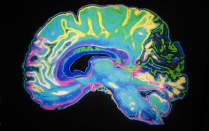
As one of the first centers of Cognitive Science in the United States, it represents a community of researchers and scholars who cross disciplinary boundaries to explore relationships between cognitive psychology, linguistics, philosophy, neuroscience and computer science.
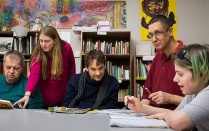
The Center for Disability Studies seeks to promote and be a forum for academic research and teaching in the humanities and social sciences while facilitating the integration of people with disabilities into the community.
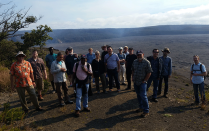
The Center for Geological and Climate Hazards supports research and training that improves our understanding - and mitigates the consequences of - natural hazards. Hazards of interest are mainly those with relatively rapid onsets, such as volcanic eruptions, geological mass flows, floods, earthquakes and hazards that are exacerbated by climate change.

The Center for Information Integrity brings together nationally-renowned faculty from computer and data science; communications and linguistics; law and political science; medicine and public health; learning and information sciences; geography and psychology and the humanities. We identify, evaluate and mitigate the impact of mis/disinformation in key areas of public life, including public health climate change and the integrity of democratic processes.

The Center for Ingestive Behavior Research (CIBR) bolsters the community of researchers at UB who study ingestive behavior in all forms. Specifically, we aim to provide financial and administrative support for our current members, as well as to attract exciting new research projects. Our commitment is to cultivate a robust and productive community of excellence.

The Center for the Study of Psychoanalysis and Culture (CSPC) is a trans-disciplinary center housed within the UB English department and supported by the department in conjunction with the Dean's office in the College. We are devoted to preserving and developing the radical dimension of the Freudian discovery.

FOXG1 Research Center (FRC) is a premier research center devoted to the studies of FOXG1 syndrome. The FRC's goal is to develop a cure for all children across the world who are impacted by the disease. The team of dedicated researchers are working hard every day to make that happen, stepping closer to the clinical trials aimed for in the next couple of years for young patients with FOXG1 syndrome.
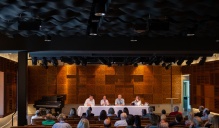
University at Buffalo’s Humanities Institute has established itself as one of the most important entities supporting the humanities in Western New York, providing a forum for conversations among humanists of all disciplines to help question, comprehend and transform an increasingly complex world.
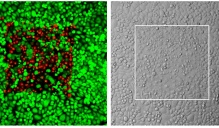
The Institute’s focus is photonics - the science and technology based on light. Photonics has been projected to play a dominant role in this century-impacting communication, information technology and health care, as well as consumer commodities.
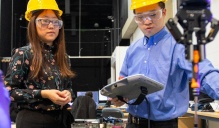
The New York State Center for Excellence in Materials Informatics helps manufacturing companies accelerate R&D, invent new materials, develop innovative new products and find the talent to diversify their capabilities and compete globally. As manufacturing companies grow and adopt new technologies, leveraging experts in computational materials engineering drives critical R&D activities.
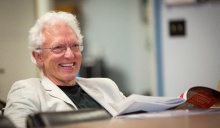
The National Center for Ontological Research was established with the goal of advancing the quality of ontological research and development and of establishing tools and measures for ontology evaluation and quality assurance.

The Psychological Services Center (PSC) is a training and research clinic for the Clinical Psychology program in the Department of Psychology. Our commitment to training emphasizes the use of the most effective and evidence-based treatments, to assure the best possible care for our clients. We strive to provide high-quality services to all persons regardless of age, race, ethnicity, physical ability or attributes, religion, sexual orientation or gender identity/expression.

The RENEW Institute is a university-wide, multidisciplinary research institute that focuses on complex energy and environmental issues, as well as the social and economic issues with which they are connected. As a major public research university, UB is committed to addressing regional and global energy and environmental challenges through enduring scholarship and intellectual innovation.

Founded and directed by composer David Felder, is built on the legacy of featuring the internationally renowned “June in Buffalo” festival, the Slee Sinfonietta Chamber Orchestra concert series, and the Wednesday Series of performances, lecture presentations and workshops. The Center is dedicated to the creation and production of new work upholding the highest artistic standards of excellence while simultaneously fostering a complementary atmosphere of creative investigation.

The Audiology and Speech-Language Pathology Clinic provides quality, state-of-the-art services to individuals with speech, language and/or hearing impairments to achieve their maximum communication potential. We are dedicated to providing quality services utilizing current clinical techniques and technology while facilitating research in the areas of prevention, education, habilitation and rehabilitation of communication disorders.
